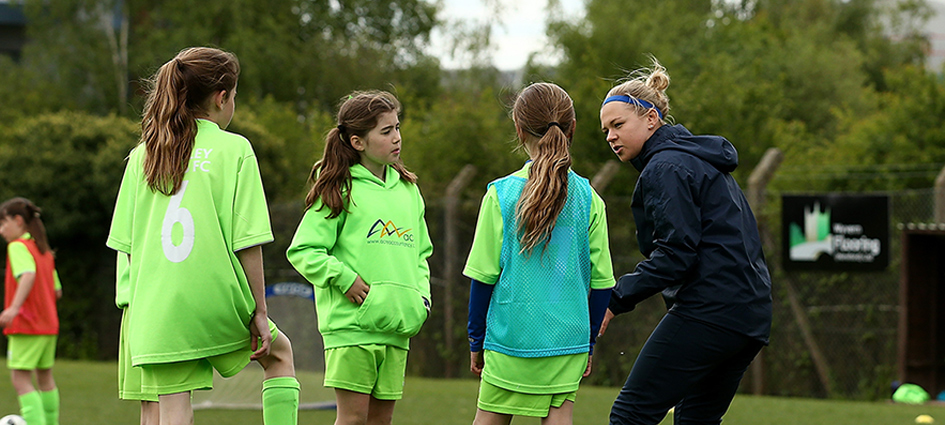
5 things coaches forget to say to players
- The Boot Room
- 27 February 2019
Communication is a crucial part of the coaching process – but quite often we fail to interact effectively with our players.
To create a positive learning environment for your players don’t forget to say these five things:
1. Explain why
Don’t assume players will make the connection between your carefully planned coaching session and the real game. It is crucial that you make connections and sell the benefits of the practice or game the players are about to undertake. Helping players understand why they are being asked to do something can improve both learning and motivation. Similarly, explain why you have changed the team formation or asked somebody to play in a different position – it will help the players deal with any emotions they have regarding the decision.
2. Outline the plan for the day
At the start of training or matchday it is crucial that you set a framework for what is to follow. This will allow the players to plan in their head how things are going to unfold, without too many surprises. At the start of the session let the players know what activities they will undertake, when they will get a drinks break and, crucially, when they will be playing a game. On matchday explain what the team is, when you will be making substitutions and how you will communicate from the touchline. By communicating the plan early you will safeguard against potential issues later in the day.
3. Tell them it’s ok to try things
Young players often have negative experiences of risk-taking and creativity in football. Providing permission to try new things is crucial and can free the players up to experiment and develop their game. When you do see a young player try something which is both new and effective in the game, follow it up with acknowledgement, positive body language and praise.
4. Rationalise decisions
Young players are very aware of how they are treated by the coach. Therefore, it is crucial that you calmly and concisely explain your decisions to the group or an individual. Try and add ‘because’ to your communication repertoire. For example: ‘I’m asking you to work in this group because…’. This will help the young players start to develop their understanding of working as part of a team.
5. Finish on a positive
After every training session or game it is the coach’s role to help the players make sense of the experience and also provide wider context. The debrief should be a learning conversation with opportunity to discuss the good bits and the areas for improvement. Crucially, finish on a positive note and tell them to enjoy the rest of the evening or weekend regardless of the result or performance.


